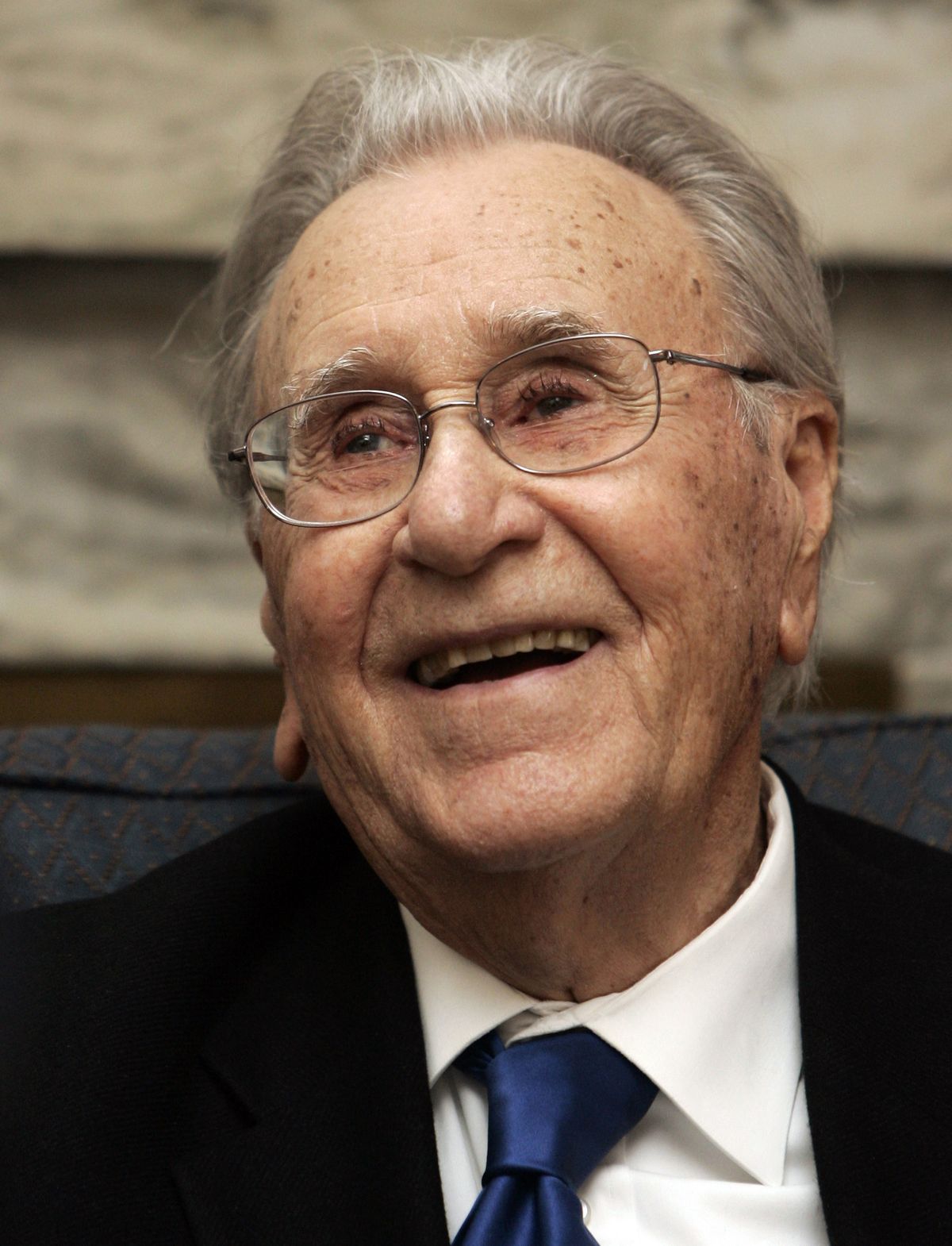Evangelist Roberts dies
Trailblazing preacher, 91, promoted ‘prosperity theology’

With emotion-laden prayers, dramatic testimonials and a powerful personal story, Oral Roberts rose from the revival tents of Oklahoma to become one of the most important forces in 20th century Christianity. Roberts, who died Tuesday of pneumonia at age 91 in Newport Beach, Calif., helped create television evangelism and “prosperity theology” or the idea that a person’s faith could be rewarded by wealth.
For years, he was the most popular evangelist on television, drawing millions of viewers each week. More than 25 million people watched his annual Christmas and Easter programs. On the strength of their donations, he built a far-flung business empire, capped by a university in Tulsa that bears his name.
Roberts first brought his fervid Pentecostal preaching style to television in 1954 – soon after Rex Humbard became the first nationally known TV minister – and attracted a loyal and generous audience. Unlike other ministers, including Jerry Falwell and Pat Robertson, who attempted to influence politics and social policy, Roberts focused more on matters of faith and finance.
Roberts became an evangelist as a teenager, when he said he was cured of tuberculosis and stuttering at a tent revival meeting. Although he did not claim the title of faith healer, his motto was “expect a miracle.” At crusades around the world, people clamored to draw close to the charismatic Roberts, whose mere touch, his most devoted followers said, cured thousands of their ailments. Some even said he could raise people from the dead.
He became a member of the United Methodist Church in 1968, but Roberts was better known for the fire-and-brimstone Pentecostal practices of his youth.
“He brought Pentecostalism out of the backwoods and made it respectable,” said Grant Wacker, a professor of Christian history at Duke University Divinity School. “One cannot imagine modern-day Pentecostalism without him. He transformed its image but also its practice.”
For Roberts and his followers, the battle between good and evil was waged every day in a world fraught with temptation and sin. He didn’t hesitate to invoke Satan as he asked his listeners for money. As early as the 1950s, he spoke of planting “seeds of faith,” suggesting that his followers would be rewarded with material success for giving money to his ministry.
“Christ has no objection to prosperity,” he said.
Despite decades of popularity on television, Roberts had many detractors. Other religious leaders accused him of hucksterism, greed and sheer fantasy. In 1980, he said a vision of a 900-foot-tall Jesus commanded him to build a medical center, called the City of Faith, near Tulsa.
With the rise of Jim Bakker and Robert Schuller, and their slickly produced shows, Roberts’ appeal began to slip in the 1980s. As his ambitions outpaced contributions, he resorted to his time-tested pulpit histrionics. In 1987, he told his viewers that God would “call him home” unless they sent him $8 million to keep his enterprises afloat.
He raised $9.1 million, proving that he remained one of the greatest salesmen of religious commitment the nation has ever seen.
“The battle is raging!” he wrote in his ministry’s magazine. “The devil is coming at me in a way that is almost beyond belief. He is saying, ‘I am going to take away your dream. You will not hold on to your vision. It’s too late. There is nothing you can do about it.’ ”
But then he pleaded for ever greater sums – $11 million, then $25 million – and when the money didn’t materialize, he said the sins of other evangelists had dried up the well of donations. Other lofty goals fell short, as well. His medical and dental schools closed; his university’s law school was sold to Pat Robertson; and in 2007, Roberts was forced off the board of his namesake university, after financial improprieties were linked to his son Richard Roberts.
Granville Oral Roberts was born into an impoverished farming family in Bebee, Okla., on Jan. 24, 1918. His father was a Pentecostal preacher.
He attended Oklahoma Baptist University and Phillips University in Enid, Okla., and became the pastor of churches in Georgia, North Carolina and his home state. To reach more people, he bought his first tent in 1948 and began to travel the country.
He gave up his globe-trotting crusades in 1968 in favor of lavish television specials, featuring such performers as Johnny Cash, Robert Goulet, Anita Bryant and Pat Boone. Roberts was also among the first religious leaders to make use of computer technology in his direct-mail campaigns. At its peak in the 1980s, his ministry was taking in $100 million a year.